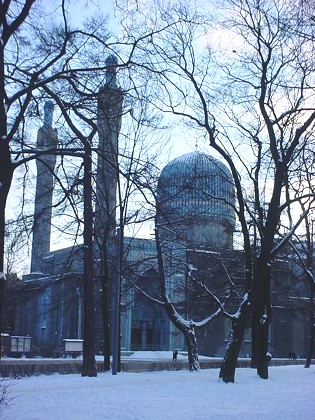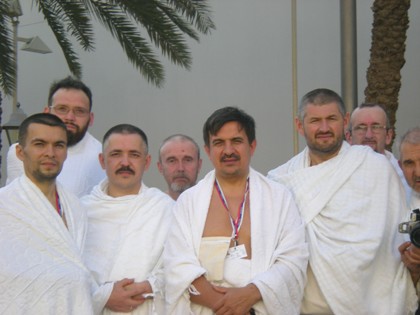Profile
- Research Subject
My current project addresses Russian and Soviet imperial involvement in Arabia from the 1890s to 1938. My dissertation “Muslim Society and State in Late Imperial Russia: Volga-Ural Region” (the University of Tokyo, 2007) scrutinized the dynamics between the interpenetrating relations of Muslim society and the state, on the one hand, and intra-communal politics among local Muslims, on the other. I also contextualized in these dynamics the intellectual discourses of Islamic reformists and nationalists. The dissertation research led me to map the Volga-Ural region onto the system of Russian Islamic policy, Russo-Ottoman diplomacy, and the interchange of knowledge and information not only among the great powers’ policy-makers, but also between the Russian Muslims and the Ottomans.
- Research Fields
- Modern History of Central Eurasia, Muslim policies of the Russian Empire and Soviet Union, Russian/Soviet involvement in the Middle East
- Graduate School - Division / Department / Laboratory
- Division of Humanities / Department of Slavic-Eurasian Studies / Laboratory of Slavic-Eurasian Studies
- Contact
Office/Lab: Slavic-Eurasian Research Center 528
TEL: +81-11-706-3790
FAX: +81-11-706-4952
Email: luch(at)slav.hokudai.ac.jp
Replace “(at)” with “@” when sending email.Foreign exchange students who want to be research students (including Japanese residents) should apply for the designated period in accordance with the “Research Student Application Guidelines”. Even if you send an email directly to the staff, there is no reply.- Related Links
Lab.letters


A Civil Society under Tsarist Rule?
I am a historian studying Muslim communities in Russia, with a particular focus on the Tatars and the Bashkirs in the eastern part of European Russia, namely between the Volga Basin and the Ural Mountains. My dissertation and first book addressed the vibrant Muslim civil society that existed in the Volga-Urals region during the last decade of the tsarist empire, that is, the period between the Russo-Japanese War and the First World War. I examined public debates carried out in the Tatar language over relations with the Islamic administration under Orthodox tsars, organs of local self-government, and the army draft. In doing so, I reconstructed institutional contexts of Muslim-state interactions with archival documents culled from St. Petersburg, Moscow, Kazan, Ufa, and Orenburg. My study suggests that late imperial Russia was confronted with a profound challenge concerning the state’s role of mediating within civil society any discord over minority rights as well as the understanding of religion, which is becoming increasingly pressing in today’s world.
A Transnational History of Russia’s Muslim Communities

The Slavic-Eurasian Research Center at Hokkaido University is a powerful driver in my scholarly life. Thanks to the comparative mega-project “Cross-Disciplinary Studies of Russia, China, and India” (led by the SRC from 2008 to 2012 ), I was able to launch and still continue to engage in a project on the hajj from the Volga-Urals from late imperial Russia to Putin’s Russia of today, as well as the local Muslim quest for Islamic knowledge, social reformism, and national ideas in global circulation patterns encompassing coreligionists from the Middle East, South Asia, and China.
A Biography that Tells the Story of Global Politics
As an offshoot of the hajj project, I am now writing a biography of the Tatar/Bashkir revolutionary, Karim Abdraufovich Khakimov (1890-1938). As a Bolshevik since 1918, he fought in the Civil War in Orenburg before moving on to the Turkestan Front in early 1920. Following the revolution in Bukhara, Khakimov became a plenipotentiary of Soviet Russia there. He then worked as consul-general at Mashhad and Rasht in Qajar Iran from 1921 to 1923. From 1924 onward, Khakimov’s life revolved around the Red Sea: he was the first Soviet ambassador to Saudi Arabia and Yemen. In short, the story of Karim Khakimov as a Bolshevik interlocutor to the Muslim world illuminates the Bolshevik transformation of the fractured empire they inherited into an anti-imperialist empire. Although Khakimov was shot in January 1938, his legacy is frequently invoked in today’s Russia. Tatarstan and Bashkortostan vie for it to forge good relations with Saudi Arabia and thereby attempt to secure their special status in Russia’s federal system; Russia’s current struggle to restore the lost Soviet-era influence in the Middle East also serves as a reminder of his name. However, it should be remembered that the Bolsheviks, including their Tatar intermediaries, were forced to incessantly struggle with disorder and violence in the aftermath of the “revolution” in Central Asia—not unlike the difficulties the US and its allies have faced in Afghanistan, Iraq, Libya, and Syria. My biography of Karim Khakimov will show Russia’s ample lessons of engagement with the Muslim world amid global politics.



